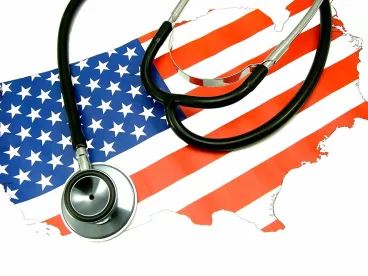On July 18, 2017, just days after CMS went public with its proposal to reduce Medicare Part B reimbursement to certain 340B covered entities, Congress held its first hearing on 340B Program Oversight since March 2015. A common thread ran through the testimony of the three testifying witnesses: Erin Bliss, Assistant Inspector General with HHS-OIG; Dr. Debra Draper, Director of Health Care at the GAO; and, Captain Krista Pedley, Director of the Office of Pharmacy Affairs at HRSA: Congress needs to legislatively grant HRSA more administrative authority over the 340B Drug Discount Program.
Captain Pedley, Dr. Draper, and a prior HHS-OIG official testified before this same Committee at a March 2015 hearing. During that hearing, HHS-OIG and the GAO expressed concerns about the explosive growth in the 340B Program as well as HRSA’s oversight efforts, but made no unified endorsement of Congressional action. What changed?
I have written, ad nauseum, about the impact of the October 2015 federal court ruling invalidating regulations interpreting the statutory orphan drug exception to 340B. The court found that because the 340B statute was unambiguous, HRSA lacked authority to engage in rulemaking in areas unauthorized by Congress. In my opinion, the orphan drug ruling was directly responsible for HRSA’s withdrawal of its “340B Mega-Reg” which would have set parameters for 340B Program compliance, as well as HRSA’s withdrawal of similar “340B Omnibus Guidance” in early 2017.
Validation did come during the June 18th hearing. Specifically, Captain Pedley testified that HSRA had undertaken rulemaking in all areas in which the 2015 federal court ruling found that it had specific delegated authority under the 340B statute. Captain Pedley went on to note, however, that:
Specific legislative authority to conduct rulemaking for all provisions in the 340B statute would be more effective for facilitating HRSA’s oversight over, and management of, the 340B Program. In addition, [a Congressional grant of] specific regulatory authority would allow HRSA to provide greater clarity and specificity to Program requirements.
Dr. Draper used her testimony to address the following four recommendations that the GAO first made to HRSA in 2011 and that she later referenced in her 2015 testimony:
- increase HRSA auditing for compliance;
- update 340B guidance for manufacturers;
- provide more specificity and clarity in the standards for 340B hospital eligibility; and
- provide more specificity and clarity in the definition of a 340B patient.
Dr. Draper acknowledged that HRSA had acted on the first two recommendations, but that it had pulled back on its efforts to act on the latter two in the wake of the 2015 ruling. Dr. Draper also raised the differing interpretations of the intent of the 340B Program, questioning whether the program’s purpose is, in part, to require covered entities and contract pharmacies to provide uninsured patients with access to 340B drugs.
Ms. Bliss reiterated HHS-OIG’s concerns about the lack of clarity in the rules governing the 340B Program. She also repeated a point that HHS-OIG made in the 2015 hearing: the lack of state Medicaid program access to information about 340B pricing hinders states from ensuring that Medicaid Programs are not paying more than the ceiling price for 340B drugs provided to Medicaid beneficiaries. Ms. Bliss supported congressional action to provide HRSA the necessary authority to clarify program rules, but stated that Congress also needed to authorize HRSA to share ceiling prices with state Medicaid Programs. Ms. Bliss did comment, however, that in areas where HRSA already had authority, action had been slow. She specifically questioned HRSA’s efforts to implement a long-promised database for sharing 340B ceiling prices with covered entities, as well as the agency’s efforts to update the processes to screen for duplicate discounts in Medicaid and Medicaid managed care.
Most of the Committee’s questions were directed at Captain Pedley.
- Perhaps as many as 10 different questions were raised about how covered entities use 340B revenues. Captain Pedley used these questions to reiterate the fact that the 340B statute does not specifically constrain a covered entity’s use of 340B revenue, nor does the statute authorize HRSA to inquire or collect information on use of the revenue.
- Captain Pedley was asked about the mechanisms through which covered entities share 340B revenues with contract pharmacies. She again pointed to a lack of HRSA authority to examine those business arrangements.
- In response to the issues raised by HHS-OIG, Captain Pedley stated that HRSA was “getting close” and “in the coming months” would implement the ceiling price verification system for covered entities. She would not, however, commit to that implementation occurring before the end of 2017. On the issue of duplicate discounts in Medicaid managed care, she indicated that HRSA was studying the issue and that it intended to “develop policy” that would in turn be used to “develop a mechanism” to implement such policy. Captain Pedley implied that such an effort could be hampered by the statute’s silence on HRSA’s authority to address duplicate discounts through regulation.
Several questions were posed to the government panelists about the CMS proposal to reduce Medicare Part B reimbursement, released on July 13th. The panelists were able to dodge the question since there was no CMS representative and they were not privy to CMS’s reasons for issuing the proposal.
What is Next?
The 340B program will remain a hotbed of activity in coming months. Below are some of the issues that will likely arise:
- The clock is now running on the CMS proposal to change Medicare Part B reimbursement for 340B drugs paid to hospitals, Community Mental Health Centers, and Ambulatory Surgical Centers. The deadline for comments is September 11, 2017. As I noted in my previous post on the proposal, CMS stated it is not implementing the proposal through rule-making. Rather, CMS asserts that it has existing authority to “adjust” Medicare payments for outpatient drugs under 42 U.S.C. § 1395I(t)(14)(A)(iii)(II).
- As part of her July 18th testimony, Dr. Draper announced that GAO has studied and will be issuing a report addressing the extent to which 340B covered entities use contract pharmacies; the types of financial arrangements that exist between covered entities and those pharmacies; the extent to which contract pharmacies provide 340B discounted drugs to low income, uninsured patients; and, compliance concerns involving 340B contract pharmacies.
- There appeared to be a consensus among legislators that Congress needed to increase HRSA’s administrative authority in 340B. However, short of giving HRSA authority to require 340B covered entities to report on the use of 340B-generated revenues, and likely giving state Medicaid programs access to 340B pricing information, it is not clear there is consensus on the breadth of the authority that should be granted to HRSA to regulate the program. Further hearings may be in the offing.
- Rumor has it that we have not heard the last of a potential Executive Order on Drug Pricing that may, or may not, include provisions targeting 340B. The last report circulating in DC was that the section of the Order specific to 340B – which would require HHS to rescind or revise administrative actions that have purportedly “allowed” the benefits of the 340B program to accrue to individuals and entities other than the vulnerable citizens the program was intentionally intended to help – had been pulled but could still be reinserted or even strengthened.
So, as I wrote last week, when it comes to 340B there is only one thing that is certain: the future of the 340B program is uncertain. Stay tuned.




 />i
/>i

